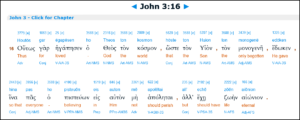Many of you have heard me use terms like “exegesis” and “bible commentaries” when I preach. The other day, I was thinking about how I need to further explain what I’m talking about when I throw around those terms in my sermons because someone approached me after worship to ask what “exegesis” means. When I led an exegetical study on Philippians last year, I defined exegesis in its most basic sense as a critical interpretation of our scriptures. One engaged in exegetical study uses history, culture, and language among other context clues in our canonical texts to discern their intended meaning. It’s helpful to have an awareness of this process because for many pastors this is the starting point for the sermon writing process. Usually, when I start exegeting a bible passage or forming my own understanding of a passage’s meaning through critical interpretation and study, I begin with bible commentaries. Bible commentaries help those tasked with preaching to begin to further explore the text. I have my personal favorites, but there are a substantial number of different bible commentaries that are put together by experts in the field of biblical scholarship. You can find all sorts of different perspectives in each commentary along with helpful facts about the original Greek and Hebrew, dating information on when it’s believed that a particular text was produced, and important context about who may have written the text and why they felt compelled to write in the first place. After that, I usually turn to the original languages and search to see if I can learn anything that the modern English isn’t communicating in our scriptures. One cool piece of information is that you don’t have to be a pastor writing a sermon or a world-class bible scholar to use these tools. They are helpful for personal study and many of them are available for free. We actually have the full set of the Interpretation commentary series in the library located in the parlor. This series is published by our denomination and is a terrific resource to use if you encounter a question about a complicated passage. Another fun place to explore is Biblehub.com’s interlinear tool. You can use this tool to see the precise meaning of each individual word in the Old Testament’s Hebrew or the New Testament’s Greek. I encourage you to check these resources out and see what new things God might teach you about our holy scriptures!

Interlinear Bible

